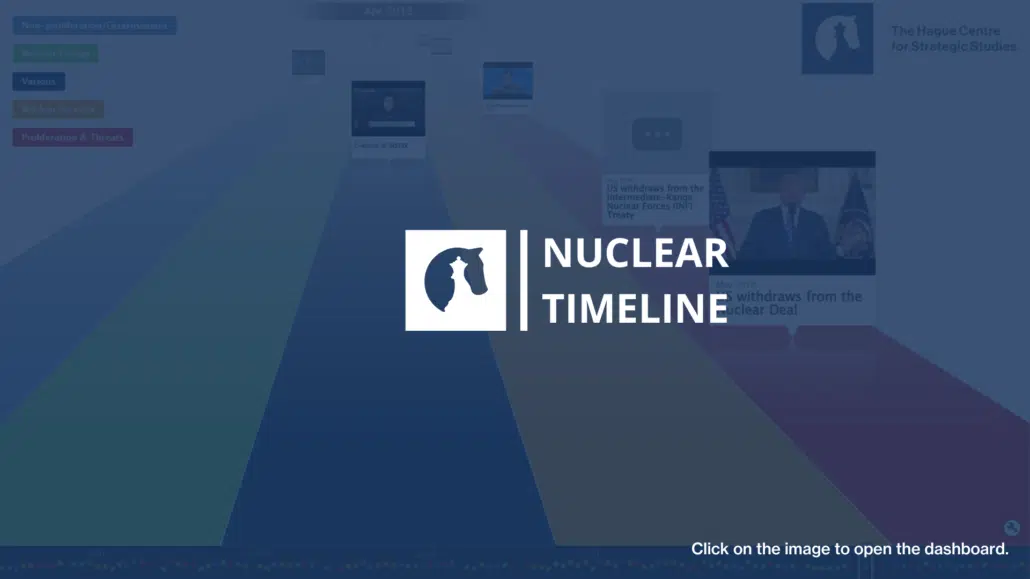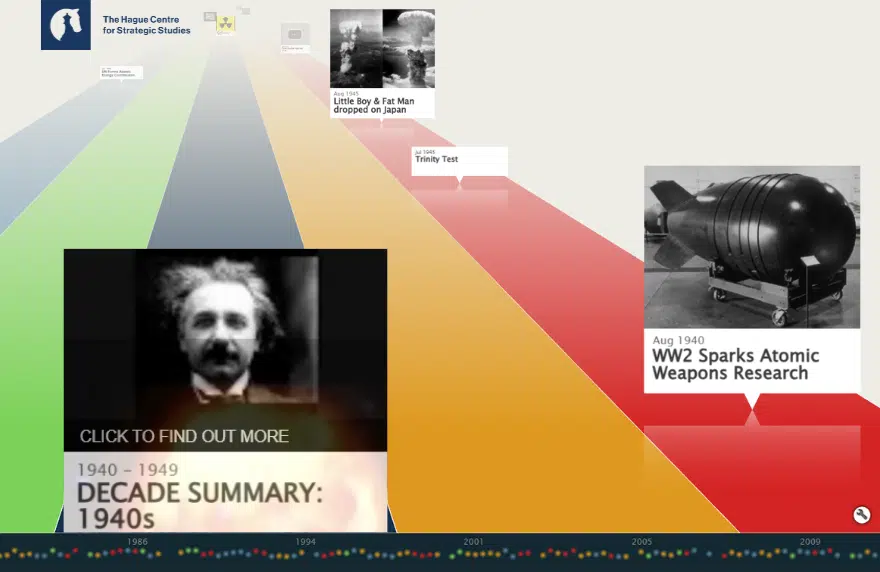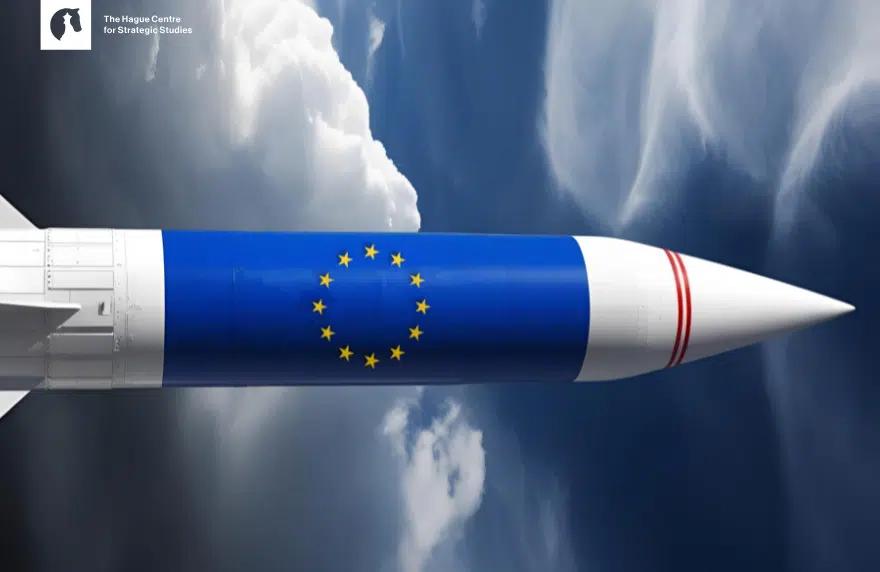The HCSS Nuclear Timeline provides a comprehensive overview of key events in nuclear history. It traces the long legacy of nuclear security threats and policies and puts these developments in a broader context. Events covered span a wide range of fields, including scientific developments, nuclear power, (non-)proliferation efforts and safety and security issues.
This historical overview can help policymakers, researchers, and the general public to better understand the continuing impact of nuclear issues on our world. Making our world a safer place in light of the unabated nuclear threats is a concern that faces all of us.
As US President Obama noted during the second Nuclear Security Summit in Seoul in 2010: “At the dawn of the nuclear age that he helped to unleash, Albert Einstein said: “Now everything has changed…” And he warned: “We are drifting towards a catastrophe beyond comparison. We shall require a substantially new manner of thinking if mankind is to survive.” That truth endures today. For the sake of our common security, for the sake of our survival, we cannot drift. We need a new manner of thinking — and action. That is the challenge before us.”
This timeline is made up of five broad categories of events:
- Non-Proliferation & Disarmament: Events in this category relate to the non-proliferation of nuclear weapons and technology, the limiting of nuclear testing or weapons development, and nuclear disarmament. It includes a range of items, e.g., the establishment of institutions such as the IAEA, the founding of nuclear-weapon-free zones, the signing of treaties, the shutting down of reactors, and anti-nuclear protests and disarmament campaigns.
- Nuclear Energy: This category covers landmark events in the history of civilian nuclear power programs around the world, including technological developments, accidents at nuclear reactors, and the implications of civilian nuclear power on the development of nuclear weapons.
- Various: In this catch-all category, we give general decade-by-decade summaries and cover a range of miscellaneous events, such as early nuclear research, significant cultural or geopolitical shifts, declarations of strategy, and notable (near)accidents involving nuclear weapons.
- Nuclear Security: The nuclear security category concerns the history of measures, institutions, technologies, and international agreements ensuring the security and safety of nuclear stocks. The term refers to the detection and prevention of theft, sabotage, smuggling, or unauthorised access to nuclear weapons, nuclear material, and other radioactive substances. This category also includes a number of notable incidents where nuclear security was compromised or threatened.
- Proliferation & Threats: This category tracks the proliferation of nuclear weapons and offers an overview of the various national nuclear weapons programs and landmark nuclear tests, as well as the numerous international crises, deadlocks, pre-emptive strikes, and computer errors that brought the world closer to a nuclear war.

This timeline has been a collaborative effort led by the Hague Centre for Strategic Studies. We are heavily indebted to researchers from the Harvard Belfer Center, the Partnership for Global Security, the Department for Nuclear Security at Delft Technical University, and the Dutch Ministry of Foreign Affairs for their input.
A timeline with such a broad scope is never fully finished. We invite users to share with us any suggestions they may have for further improvement. Please do not hesitate to contact us at info@hcss.nl.









